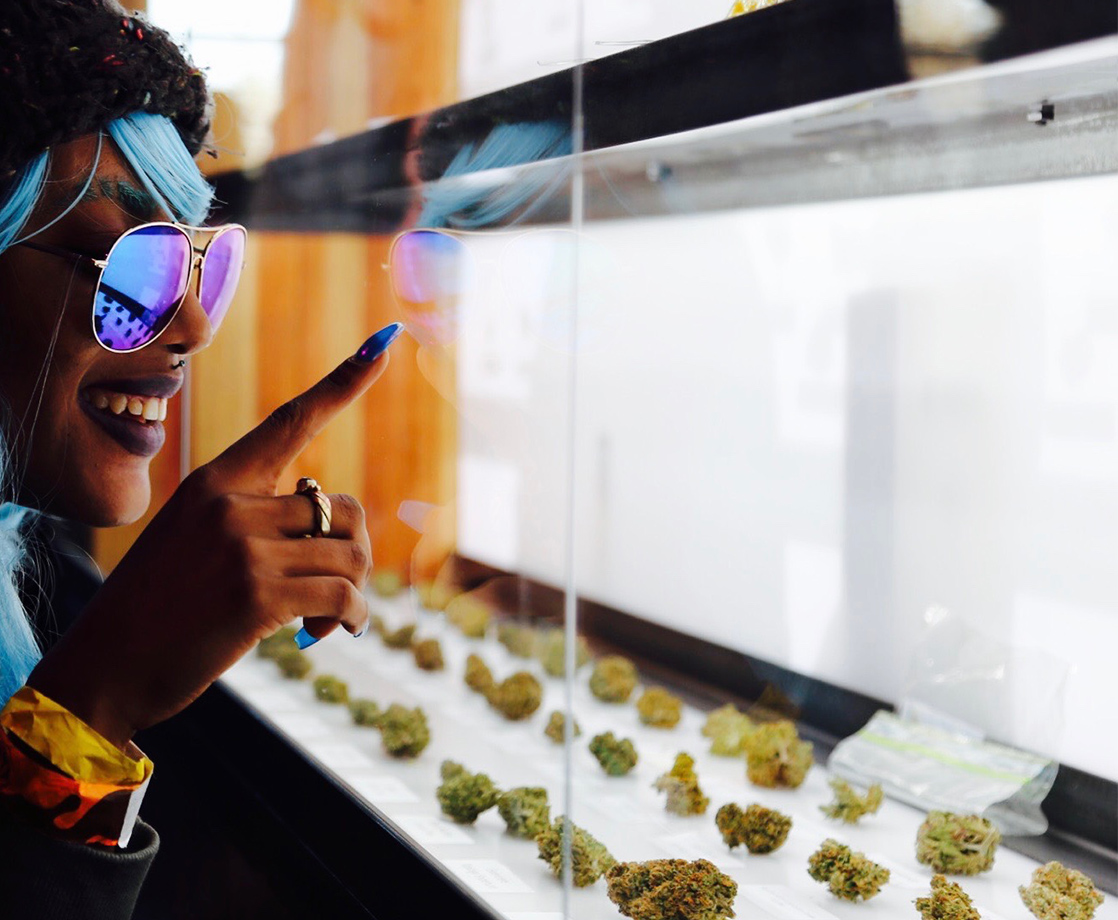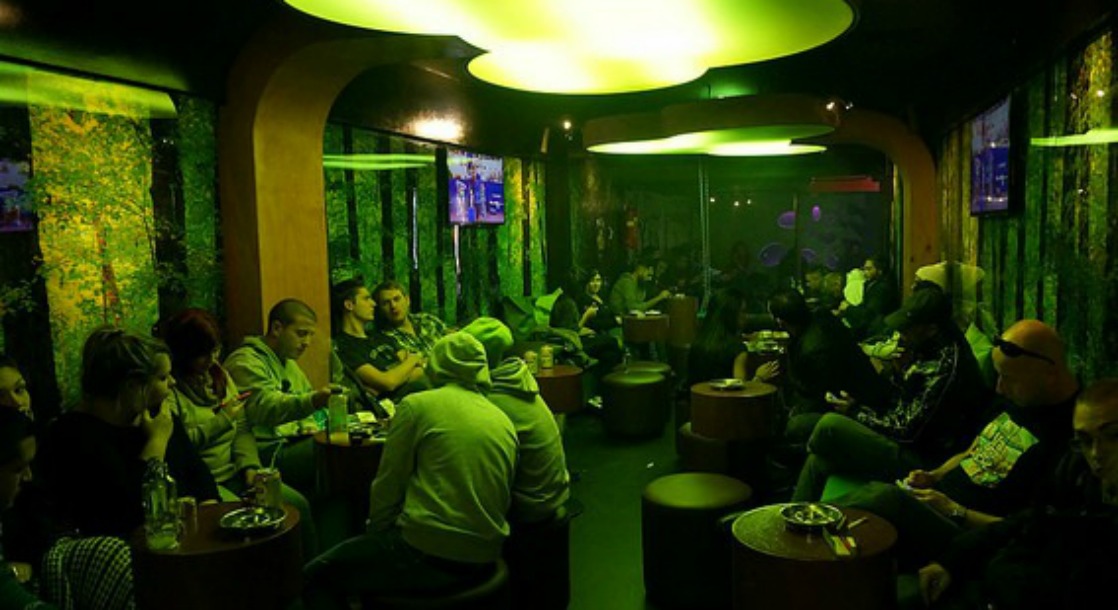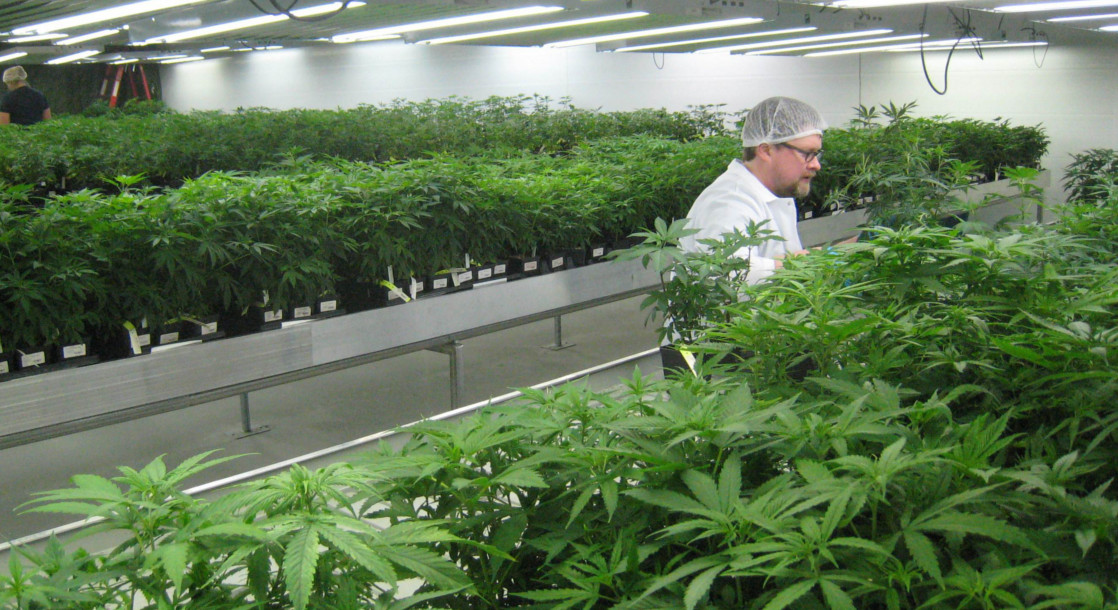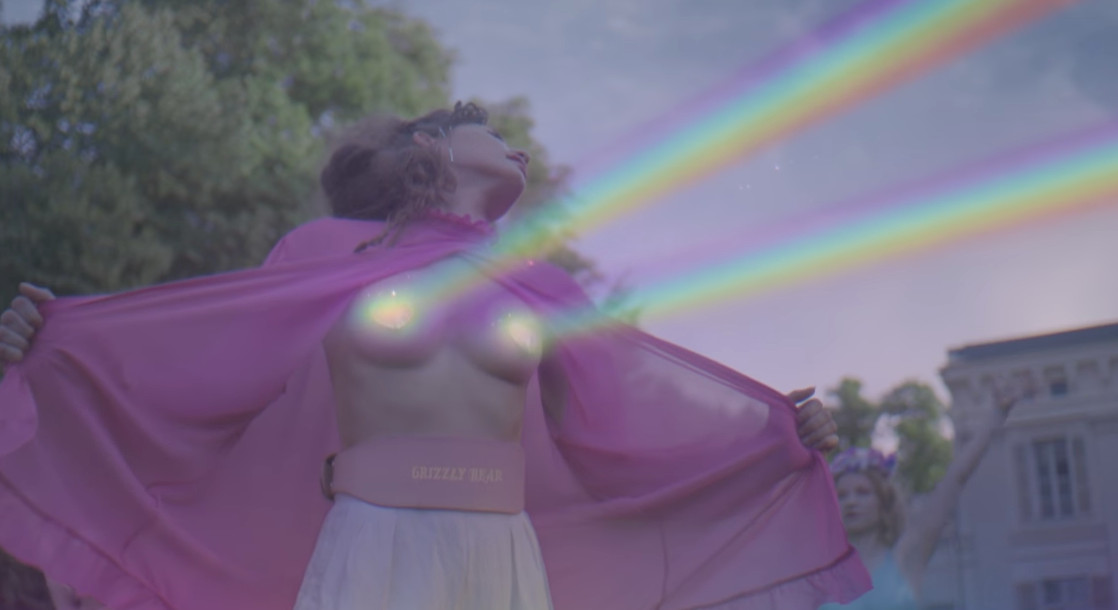All photos courtesy of Jane Stewart and The Emerald Cup
The scene outside Sonoma County's 14th annual Emerald Cup, the premier festival for California's outdoor cannabis farmers, could almost be mistaken for the lot surrounding any music festival in America. Dreadlocked trimmigrants littered the grass selling wire-wrapped crystals or scalping tickets. Young guys in tie-dyed shirts hit dabs on the hoods of their parked cars. Groups of metalcore bros alternated between uncomfortably-long ponytails and equally-long shorts, whooping and hollering towards the entrance in an unbridled display of testosterone.
This was more than your average weed cup, though; it's a festival for growers, by growers. And despite the presence of usual suspects like "hip-necks" (slang for a hippie-redneck hybrid, a term which some people in the cannabis community use to describe the vibe of growers), dedicated stoner dudes, and more corporate-looking cannabis entrepreneurs, one demographic remained noticeably sparse over the two-day event: women.

While legality has opened the doors for more women to enter the cannabis industry than ever before, no facet of the industry is as male-dominated as the cultivation community, which the Emerald Cup mainly caters to. Inside the grounds, booths selling seeds, nutrients, and attack dogs to guard grow farms outweighed the companies offering the beautifully-packaged edibles and delicate smelling salves you would find at any SoCal weed fest. Of the 30,000+ attendees that visited the event over the weekend, I'd say fewer than 30% were women (and that's a generous estimate).
Free dabs are the universal language of cannabis events like The Emerald Cup, and they function as advertisement for booths selling flower and concentrates, as well as the festival's main form of entertainment (not including a performance by The Roots). Around my second or third rip — I don't usually dab, and immediately became too high to count — I bumped into Lisa, a cultivation scene veteran who now runs her own business selling clones to some of Northern California's best growers.
"The Emerald Cup is where the big growers come to get their seeds for the season," she told me while sitting on the grass in tie-dyed jeans. "People buy, like, $5,000 worth of seeds every year with all the new genetics and what they liked from last year. It's really a big seed expo." Lisa, who prefers to remain anonymous due to the black market nature of her operation, has worked through the ranks, doing everything from trimming to growing her own flower over the course of her ten years in the cannabis industry.

"Everyone always thinks you're someone's girlfriend," she lamented. "There are a lot of women trimming, harvesting, and manicuring the weed. There are a lot of women doing CBD salve-type body care stuff. But the growing side of it is really a male-dominated thing. It's hard work, heavy lifting, moving machinery. It's farming."
She continued as she twirled a 24k gold joint between her fingers. "It really takes a certain type of woman to be down with that, and there's a very small percentage of women who are doing the damn thing by themselves without a man orchestrating it for them. But I have some amazing girlfriends who are, and it's wonderful to see. Just the way a woman puts her energy into a plant, the female plant, and the connection women have with these plants… all the boys say the girls grow the best weed because we're nurturing, we're loving."
Paisley Sins, a 23-year-old grower who's been working in cannabis since she was 16, is another badass woman I met at the festival who runs her own operation. This year, she harvested 50 pounds of flower from 12 full-sun plants grown in 550 gallon pots, each of which she lined with pink fabric.
"This was my first year doing everything on my own," said Sins. "I worked for a lot of men over the past six years. I've pulled tarps, I've transplanted plants, I've made clones. I've worked on 99 gardens, two of them back to back. I've been raided. I've done the whole deal. Being a woman, there are struggles that make it more difficult."
Sins also articulated the other frustrations of working in a male-centric industry. "Everyone wants you to be their assistant, or their little wifey in the kitchen. They think they can take advantage of you because you don't have money to start. The truth is, most of the time, you're working for men."

After dab number five (seven, maybe?), I separated from my friends to wander the fairgrounds, wildly stoned. The sun was beginning to fade, and Bay Area freeze started rolling in from the mountains. As I navigated a sea of men ranging from friendly-looking tokers to rugged farmers, old hippies to guys who looked as if they were fresh off the prison yard, the reality of what these female growers do began to set in.
While many cannabis operations have transitioned in tandem with legalization changes, the cultivation side of the industry is still largely black market and underground, where there are no written contracts, legal constructs, or even websites associated with established "businesses." Most grows are located in areas where there's no cell phone service, and many describe The Emerald Triangle as the wild west of weed. In addition to the concerns every grower faces daily — like getting robbed, natural disasters, and other ways to get financially fucked — women deal with the added risk of sexual assault, and have to work twice as hard for the same respect male growers inherently receive.
After reaching a point of mild panic in an I-got-too-high-at-the-function type of way (something I hadn't experienced since high school), I was beyond stoked to see Pete Pietrangeli, owner of Acme Elixirs, a vaporizer and concentrate company based in Los Angeles, who led me through a labyrinth of booths to a hidden garden bar. Green plants lined the room, and guests were sitting on bales of hay. All the friends I came to the festival with were there, sipping IPAs beneath heated lamps.
Among them was Jane Stewart, the canna-powerhouse who organized The Emerald Cup contest and also runs the event's marketing department. She offered a more positive, albeit similar, take on being a woman in the industry, compared to the female growers I talked with.

"It's similar to the way you have to prove yourself in any industry," said Stewart. "Cannabis is male-dominated, but so is every other industry. I think the men that head up the cannabis industry tend to be a bit more evolved." She went on to describe how she was given a lot of trust and "blank space to see what I was capable of" in the beginning of her cannabis career, even before she had any weed experience on her resume. "If it weren't for those men in high places, I might not have been able to rise up the ladder so quickly."











